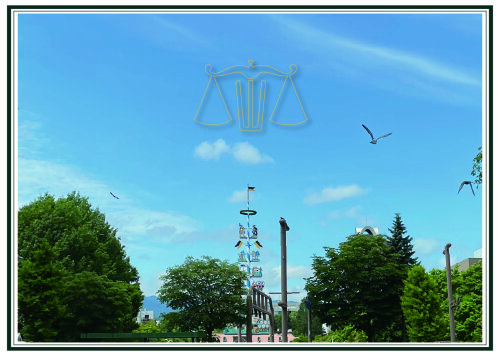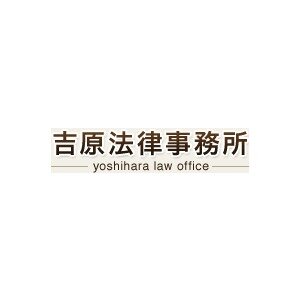Best Domestic Violence Lawyers in Sapporo
Share your needs with us, get contacted by law firms.
Free. Takes 2 min.
Free Guide to Hiring a Family Lawyer
List of the best lawyers in Sapporo, Japan
About Domestic Violence Law in Sapporo, Japan
In Japan, domestic violence is addressed under the "Act on the Prevention of Spousal Violence and the Protection of Victims," which also covers the city of Sapporo. The law was enacted to prevent spousal violence, protect the rights and welfare of victims, and contribute to the sound development of families. It categorizes domestic violence as physical harm, psychological harm, sexual assaults, and controlling behaviors that restrict freedom. This act also provides the framework for issuing protection orders, guidance and support for victims, and rehabilitation programs for perpetrators.
Why You May Need a Lawyer
Several situations may lead you to require legal assistance in cases of domestic violence in Sapporo. If you are a victim seeking to escape an abusive environment, you may need help securing a protection order, understanding your rights under Japanese law, or pursuing criminal or civil charges against the perpetrator. Legal advice can also be helpful in divorce or custody proceedings influenced by allegations of domestic violence. Lawyers in the field can provide essential counsel on how to navigate these complex issues safely and legally.
Local Laws Overview
The key aspects of local laws relevant to Domestic Violence in Sapporo align with the national Japanese legal system. Protection orders can be issued for periods ranging from a couple of weeks up to two months and can be extended. There are two types of orders: one that prevents the perpetrator from approaching the victim and one that forces the perpetrator to move out of the residence. Breaching these orders can lead to criminal penalties. In addition to protection orders, the Japanese law allows victims to seek solace in shelter facilities and provides confidential consultations through Spousal Violence Counseling and Support Centers.
Frequently Asked Questions
What is considered domestic violence in Sapporo, Japan?
Domestic violence in Sapporo includes physical abuse, psychological/emotional abuse, sexual violence, and controlling behaviors that limit someone's personal freedom within the context of a domestic relationship.
Where can I file a report about domestic violence in Sapporo?
You can file a domestic violence report at the nearest police station, a Spousal Violence Counseling and Support Center, or a Women's Consulting Office.
Can I get a restraining order in Sapporo, and how?
Yes, you can obtain a restraining order, known as a "protection order" in Japan, through the Family Court. You will need to provide evidence of the abuse, and a lawyer can guide you through this legal process.
Are there shelters for domestic violence victims in Sapporo?
Yes, there are shelters offering protection and support to victims of domestic violence. These are typically run by the government or private organizations dedicated to assisting victims.
Is emotional abuse recognized and punishable under the law in Sapporo?
Emotional abuse is recognized as a form of domestic violence under Japanese law, and victims can seek legal protection and remedies.
Can men be victims of domestic violence in Sapporo?
Yes, men can be and are recognized as victims of domestic violence, and the laws apply equally irrespective of gender.
Does seeking legal advice for domestic violence require a fee?
Professional legal advice usually requires a fee. However, there may be free or subsidized services available through legal aid societies or support centers.
Can I seek legal protection for my children from domestic violence?
Yes, you can seek legal protection for your children, and the law provides mechanisms to safeguard minors from domestic violence, including custody arrangements.
What should I do if I am accused of domestic violence in Sapporo?
If you are accused of domestic violence, it is crucial to seek legal representation immediately to understand your rights and obligations, as well as to ensure a fair legal process.
Are same-sex relationships covered under domestic violence laws in Sapporo?
While same-sex marriage is not legally recognized in Japan, the domestic violence laws apply to those in de facto relationships, which can include same-sex partners.
Additional Resources
For those in need of legal advice concerning domestic violence, the Spousal Violence Counseling and Support Centers offer free consultations and are an excellent starting point for understanding your rights and options. Women's Consulting Offices (known as "Josei Sodan" in Japanese) also provide assistance. For legal representation, you may contact the local Sapporo Bar Association, which can refer you to lawyers experienced in domestic violence cases.
Next Steps
If you require legal assistance for a domestic violence situation, your first step should be to ensure your immediate safety. This may involve contacting the police or moving to a shelter. For legal proceedings, documenting any evidence of abuse is crucial. Contact a lawyer specializing in family law or domestic violence cases, who can help you understand the legal options available, such as filing for a protection order. Consider reaching out to the Spousal Violence Counseling and Support Centers for advice and to connect with social support services and legal aid if necessary.
Lawzana helps you find the best lawyers and law firms in Sapporo through a curated and pre-screened list of qualified legal professionals. Our platform offers rankings and detailed profiles of attorneys and law firms, allowing you to compare based on practice areas, including Domestic Violence, experience, and client feedback.
Each profile includes a description of the firm's areas of practice, client reviews, team members and partners, year of establishment, spoken languages, office locations, contact information, social media presence, and any published articles or resources. Most firms on our platform speak English and are experienced in both local and international legal matters.
Get a quote from top-rated law firms in Sapporo, Japan — quickly, securely, and without unnecessary hassle.
Disclaimer:
The information provided on this page is for general informational purposes only and does not constitute legal advice. While we strive to ensure the accuracy and relevance of the content, legal information may change over time, and interpretations of the law can vary. You should always consult with a qualified legal professional for advice specific to your situation.
We disclaim all liability for actions taken or not taken based on the content of this page. If you believe any information is incorrect or outdated, please contact us, and we will review and update it where appropriate.











